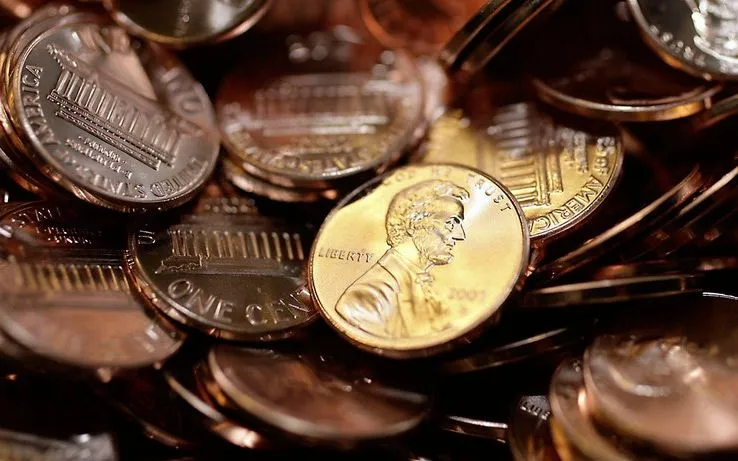
US coins. (Source: AP)
Now that the U.S. has stopped producing penny coins, gas stations, fast-food chains and large retailers are being forced to quickly adjust prices and round up cash transactions, which could impact their profits.
The penny shortage is happening faster than retailers expected, following President Donald Trump’s decision earlier this year to stop producing the coin. Retail groups say they have received no specific guidance from the Trump administration and lawmakers, prompting them to round down to avoid offending customers and violating laws in some states. The move could mean significant losses for businesses with high transaction volumes.
The coin shortage is affecting retailers in both urban and rural areas, said Dylan Jeon, senior director of government relations for the NRF, whose members include Walmart, Target, Macy's and Old Navy.
Several major convenience store chains have issued warnings to customers. Sheetz, a family-owned convenience store chain, posted a sign at a Pennsylvania store saying the U.S. Mint would stop producing pennies and the store was running low on change. Customers were encouraged to go cashless or round up to donate to charity...
Kwik Trip, a convenience store chain based in La Crosse, Wisconsin, announced that its 850 stores across the Midwest would round cash transactions to the nearest 5 cent. A store in Dallas also posted signs warning customers that the U.S. Treasury had stopped producing the dime coin, leading to a potential shortage of change. Many of its 2,700 stores have posted signs asking customers to pay with exact cash. Several other major chains have taken similar measures.
Several countries, including Canada, Australia, Ireland and New Zealand, have eliminated the lowest denomination coin, rounded up cash transactions or rounded down to the nearest 5 cents, while still allowing electronic payments. These measures reduce minting costs and simplify cash handling for retailers.
In the United States, phasing out the penny would require stores to adopt similar rounding practices, adjust cash registers, and provide clear notices to consumers. However, some states, such as California, New York, and Illinois, have consumer protection laws that require retailers to provide exact change for cash transactions.
Although President Trump initiated the penny's cessation, Congress still has control over the minting of coins, meaning legislation would be needed to permanently halt production.
The government expects to save about $56 million a year by ending the minting of pennies. There are about 114 billion pennies in circulation in the United States.
Source: https://vtv.vn/my-ngung-san-xuat-dong-1-xu-cac-nha-ban-le-gap-kho-100251102184344512.htm


![[Photo] Prime Minister Pham Minh Chinh receives the Chairman of the Japan-Vietnam Friendship Association in the Kansai region](https://vphoto.vietnam.vn/thumb/1200x675/vietnam/resource/IMAGE/2025/11/03/1762176259003_ndo_br_dsc-9224-jpg.webp)


![[Photo] Fall Fair 2025 and impressive records](https://vphoto.vietnam.vn/thumb/1200x675/vietnam/resource/IMAGE/2025/11/03/1762180761230_ndo_br_tk-hcmt-15-jpg.webp)
![[Photo] Lam Dong: Close-up of illegal lake with broken wall](https://vphoto.vietnam.vn/thumb/1200x675/vietnam/resource/IMAGE/2025/11/03/1762166057849_a5018a8dcbd5478b1ec4-jpg.webp)
![[Photo] General Secretary To Lam receives Singaporean Ambassador Jaya Ratnam](https://vphoto.vietnam.vn/thumb/1200x675/vietnam/resource/IMAGE/2025/11/03/1762171461424_a1-bnd-5309-9100-jpg.webp)










































































































Comment (0)